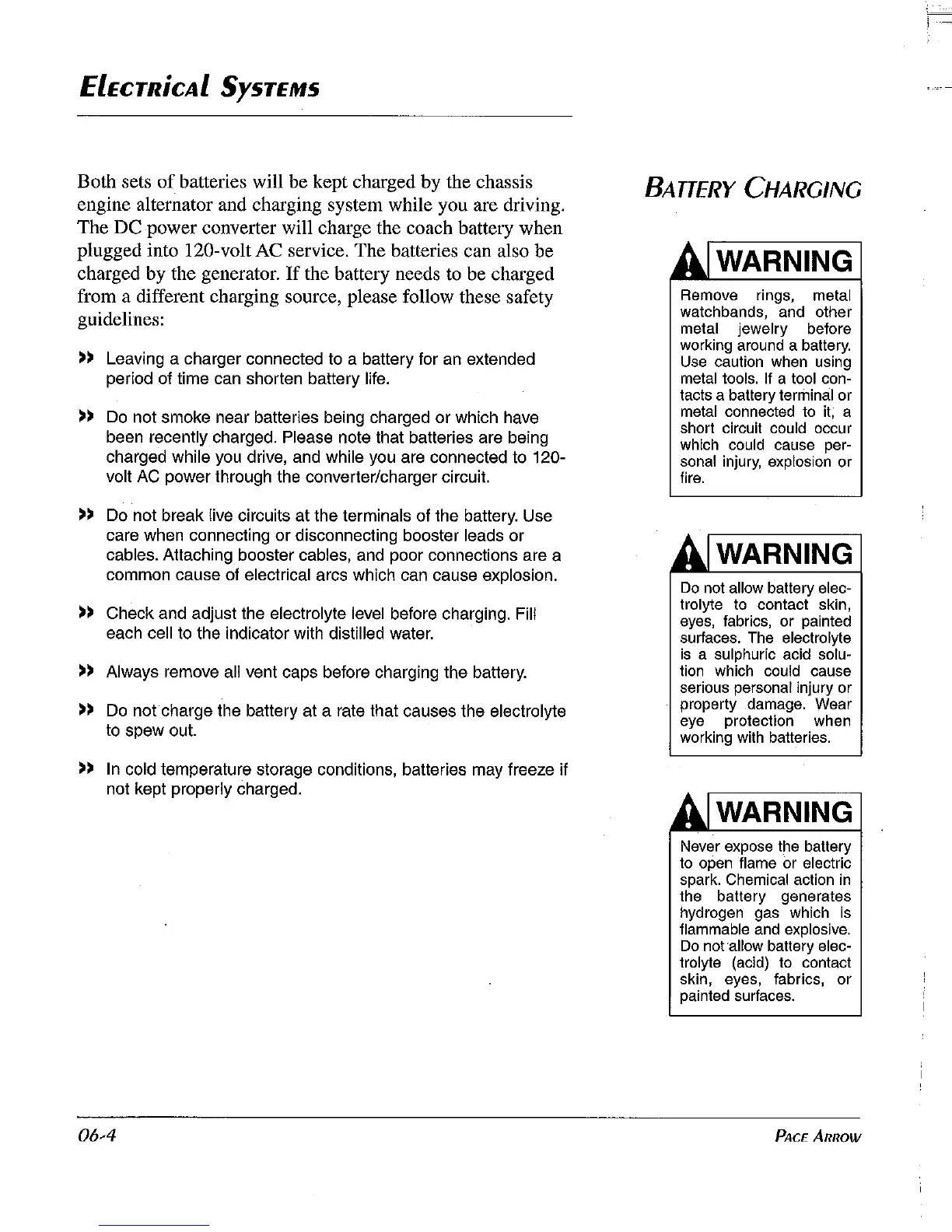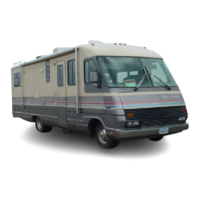ELECTRicAL
SYSTEMS
Both sets
of
batteries will be kept charged by the chassis
engine alternator and charging system while you are driving.
The DC power converter will charge the coach battery when
plugged into 120-volt AC service. The batteries can also be
charged by the generator.
If
the battery needs
to
be charged
from a different charging source, please follow these safety
guidelines:
» Leaving a charger connected to a battery for an extended
period of time can shorten battery life.
» Do not smoke near batteries being charged
or
which have
been recently charged. Please note that batteries are being
charged while you drive, and while you are connected to 120-
volt AC power through the converter/charger circuit.
» Do not break live circuits
at
the terminals of the battery. Use
care when connecting
or
disconnecting booster leads or
cables. Attaching booster cables, and poor connections are a
common cause of electrical arcs which can cause explosion.
» Check and adjust the electrolyte level before charging. Fill
each cell to the indicator with distilled water.
» Always remove all vent caps before charging the battery.
» Do not charge the battery
at
a rate that causes the electrolyte
to spew out.
» In cold temperature storage conditions, batteries may freeze if
not kept properly charged.
06-4
BATTERY
CHARGING
WARNING
Remove rings, metal
watchbands,
and
other
metal jewelry before
working
around
a
battery.
Use
caution
when
using
metal
tools.
If
a
tool
con-
tacts a battery terminal
or
metal
connected
to
it,
a
short circuit
could
occur
which
could
cause
per-
sonal
injury,
explosion
or
fire.
WARNING
Do
not
allow
battery elec-
trolyte
to
contact skin,
eyes,
fabrics,
or
painted
surfaces.
The
electrolyte
is
a sulphuric
acid
solu-
tion
which
could
cause
serious personal injury
or
property
damage.
Wear
eye
protection
when
working
with
batteries.
WARNING
Never
expose
the
battery
to
open
flame
or
electric
spark.
Chemical
action
in
the battery generates
hydrogen
gas
which
is
flammable
and
explosive.
Do
not allow battery elec-
trolyte
(acid)
to
contact
skin, eyes, fabrics, or
painted
surfaces.
PACE
ARROW
